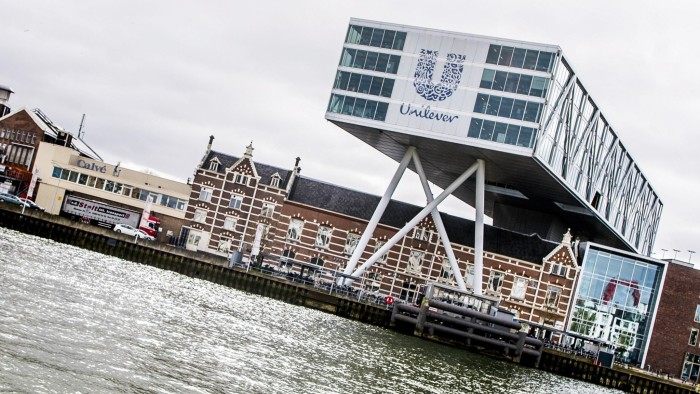How and when zero-based budgeting boosts corporate productivity
Simply sign up to the European companies myFT Digest -- delivered directly to your inbox.

Resetting the dials to nought is one way of signalling radicalism. French revolutionaries and the Khmer Rouge embraced a Year One and a Year Zero, respectively. Given the sanguinary consequences, middle managers confronted with the trend for zero-based budgeting (ZBB) are right to feel nervous. There may be blood on the carpet, if only of the metaphorical kind.
ZBB requires every item within a business and its sub-units to be justified anew within any budgetary period. It can be a scary concept. If a tea trolley has brought round cakes and hot drinks every week since 1983, that does not mean you still need it this week.
In its most aggressive form, as practised by some private equity groups, ZBB can make a business feel as if it is experiencing a permanent revolution. The aim here is financial rather than ideological, in the shape of an exit that enriches the owners. This can leave an under-invested business tottering towards disaster.
If you work at a company where worn carpet tiles are replaced singly and low mileage allowances require staff to subsidise their own sales jaunts, you may be experiencing this strategy in practice.
ZBB has been around since the 1960s, when it was developed by Peter Pyhrr, an accountant at Texas Instruments. Its current prominence — not to say notoriety — is thanks largely to its use by Brazilian investor-led buyout group 3G, when combining HJ Heinz and Kraft Foods in 2015. Margins at the combined food group improved markedly.
Last year, Kraft Heinz made a bid approach to Anglo-Dutch consumer goods group Unilever. This collapsed when Unilever demurred, because the backers included Berkshire Hathaway, which avoids hostile takeovers. However, Unilever was sufficiently rattled to raise margin targets and talk up its enthusiasm for ZBB.
The profitability of the company, which has pursued social aims as enthusiastically as capitalist ones, has historically lagged behind those of rivals with fiercer internal cost-cutting cultures, such as Reckitt Benckiser.
Sir Martin Sorrell, veteran chief executive of marketing giant WPP, recently included ZBB in a list of factors curbing client spending. It is no coincidence that ZBB is popular in mature industries. Brewing giant AB InBev, whose investors include founding partners of 3G, also practises it.
In mature sectors, profits tend to rise only in line with gross domestic product. Here, technology will be long-established and widely held, and market share hard to win. Productivity rises can then only come from marginal gains in efficiency. The cyclist who shaves his legs in hopes of making a tiny improvement in lap times is engaged in the same quest.
More pertinently, perhaps, ZBB has something in common with lean manufacturing. This production philosophy, formalised as the Toyota Production System in Japan and Six Sigma in the US, focuses on eliminating waste within a factory by subordinating all parts of the supply chain to production.
That might sound boring. Lean manufacturing however has the ability to revivify the culture of sluggish businesses by pushing elements of decision-making down into production units. Workers who deal every day with the minutiae of production often know better how to improve it than bosses who never get their hands dirty.
Lean manufacturing and ZBB require adherents to approach spending and manufacturing with fresh eyes. Factories can accumulate wasteful processes — an indirect route for a delivery robot avoiding an assembly line that has since moved elsewhere, for example. Equally, a consumer goods business may no longer need baseline advertising spending of $10m a year in Chicago newspapers if the readership of the latter has collapsed.
I recently dropped in on a chief executive who over the past four years has turned round the fortunes of a listed multinational. The next stage, he said, was to implement ZBB.
Is that not the accounting equivalent of a scorched earth policy, I asked.
His reply: it depends how you go about it. ZBB imposed by the centre might well feel like that. Used as a financial discipline within satellite businesses, he believes it will increase autonomy.
Chief executives and finance directors who micromanage divisional budgets are doomed to failure by their lack of detailed knowledge. Productivity gains are more likely when divisional bosses are given tough targets and left to get on with it.
It ain’t what you do, it’s the way that you do it. Pursued in the same spirit as lean manufacturing, zero-based budgeting makes a lot of sense. If it is merely a stick with which to beat local managers and workers, short-term improvements in margins will damage shareholders’ equity in the longer term.
The writer is head of the Lex column
This article has been changed to correct the description of AB InBev

Comments